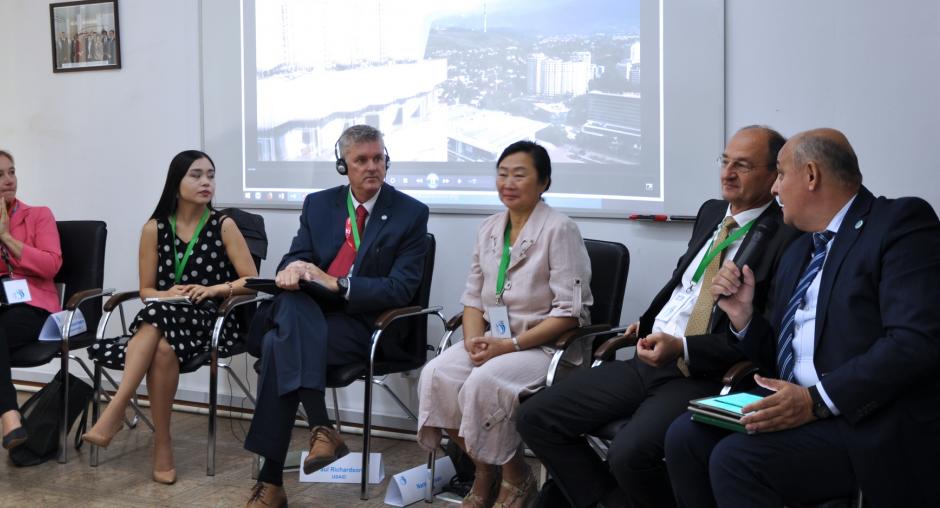OSCE supports environmental leadership programme for Central Asia and Afghanistan

The OSCE-supported ninth annual Central Asian Leadership Programme (CALP) on Environment for Sustainable Development involving young leaders from the Central Asia and Afghanistan concluded on 23 September 2018 in Almaty, Kazakhstan.
The seven-day event was co-organized by the OSCE Programme Office in Astana in partnership with the Regional Environmental Centre for Central Asia, the Government of Norway and the US Agency for International Development.
Some 30 young representatives from the state, academic, business and non-governmental sectors of Afghanistan, Kazakhstan, Kyrgyzstan, Tajikistan, Turkmenistan and Uzbekistan focussed on understanding the trends and efforts required to promote sustainable development and to address environmental challenges.
Participants learned about issues including integrated water resources management, protected areas governance, global platforms for co-operation on protection of the environment, Agenda 2030 (a Kazakhstan government development programme) and the United Nations Sustainable Development Goals. Participants were encouraged to use the opportunity of the event to network with potential future partners to help promote regional co-operation.
“During the last decade, CALP has developed into a unique platform where the voices of young environmental leaders can be heard,” said Iskandar Abdullaev, Executive Director of the Regional Environmental Centre for Central Asia. “CALP participants not only develop their professional skills but also build long-lasting connections that will help them in their professional life.”
György Szabó, Head of the OSCE Programme Office in Astana said: “The OSCE highly values the role of youth in addressing environmental challenges. By supporting the CALP, we are building a network of young leaders who will contribute to promoting mutual trust and addressing environmental challenges.”
The event is part of the Programme Office’s long-standing efforts to engage youth and promote environmental leadership in the Central Asia region and Afghanistan.
